absolutely nominated
Our podcast has been nominated for the European Podcast Award – please help us win the prize by voting for us. Just click on the German and the Danish flag and vote for Absolutely Intercultural. The address is http://www.european-podcast-award.eu/ and basically all you need to do is to give us a star rating for both content and design and then click the Vote button and that’s it. Thank you in advance!
absolutely down-under
As I am preparing to leave Australia soon, in my mind I am trying to compile a collection of lasting impressions that I gained during my stay in down-under. Now, for this podcast my challenge was – to capture one specific sound that would be emblematic for Australia. For me, personally, this would probably be the incredible bird sounds that I have already shared with you in previous shows. However, I have a feeling that for others the sound of the didgeridoo captures the Australian spirit best. In a small country town of the Hinterland I was fortunate enough to meet a part-blood Aboriginal and his daughter, both, producers and players of these Yirdakis, which is the real name for these curious wind instruments developed by Indigenous Australians of northern Australia since at least 1500 years ago. In our first category, I wanted to find out what exactly you have to do to produce this typical sound and where the name “didgeridoo” comes from.
absolutely lifelong
We are still talking about learning – can you imagine going to school again for the rest of your life? And to sit in class and listen to what a teacher tells you? Or maybe there are other forms of learning out there?
Lifelong learning is often promoted by institutions of adult education, so we have interviewed Ulla and Beate, who both work for adult education institutions. Ulla works for the Folkuniversitetet in Sweden and Beate for Volkshochschule Köln, in Germany. I asked them whether there is a recognisable culture of lifelong learning, and what makes people want to carry on learning throughout their lives.
absolutely distant
It is incredibly rewarding to work with people who out of their own free will decide to improve themselves and constantly set themselves new challenges by integrating into new learning situations.
Two of these people are Jakub and Mariusz, two Erasmus students from Poland, who spent a summer semester at RheinAhrCampus in Remagen. In our last category they describe a stark difference between the student-professor-relationships in Poland and in Germany. Geert Hofstede describes the intercultural dimension behind this as “power distance”. It is defined as the extent to which the less powerful members of institutions (here the students) expect and accept that power is distributed unequally.
Now, the observation of the two students totally confirms Hofstede’s theory. Power Distance in Poland is much higher than in most other European countries and in particular than in Germany. So it was to be expected that Polish students found the idea of a German Professor as a colleague and a friend very disturbing. However, we started our interview with the Polish students’ observations about Europe. They report that while the European idea is still new and exciting in Poland the Germans do not seem to appreciate or even question it any longer because they simply take Europe for granted.
The next show will be hosted by Anne Fox in Denmark on 02. April.
Until then –
Bleiben Sie absolut interkulturell!
The host of this show is: Dr. Laurent Borgmann
Editor: Dino Nogarole

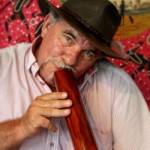

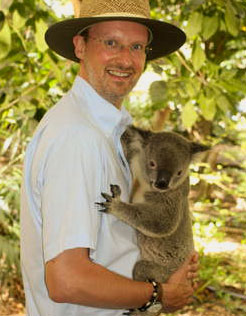
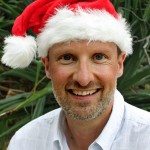
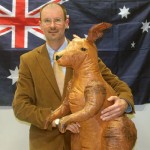 absolutely down-under
absolutely down-under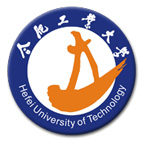
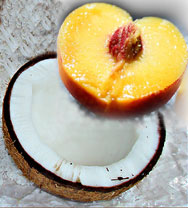 Even if we expect differences when we travel or meet foreigners in our own countries – the best and most intensive intercultural learning is always accompanied by small culture shocks. Our show today will focus on the
Even if we expect differences when we travel or meet foreigners in our own countries – the best and most intensive intercultural learning is always accompanied by small culture shocks. Our show today will focus on the 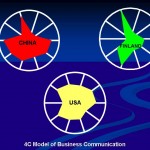
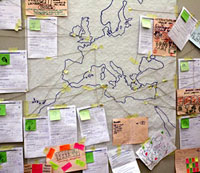 Today we will focus on the
Today we will focus on the  The unifying theme for this show is learning. Firstly learning by experience. Remember Greg Houfe from the UK who talked to us before starting a consultancy project in Denmark? As we’ll hear later he’s now not quite so sure that business practices are pretty universal within Europe. We’ll also be hearing about a very simple way of motivating people to improve their English by getting them to talk about aspects of their home culture.
The unifying theme for this show is learning. Firstly learning by experience. Remember Greg Houfe from the UK who talked to us before starting a consultancy project in Denmark? As we’ll hear later he’s now not quite so sure that business practices are pretty universal within Europe. We’ll also be hearing about a very simple way of motivating people to improve their English by getting them to talk about aspects of their home culture.